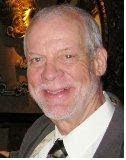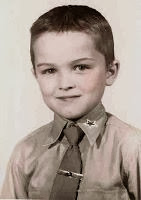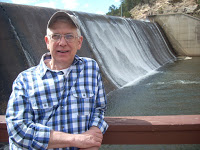subject to write about. First of all,
doing something that requires “preparation” usually implies that
something is about to happen that I would just as soon not happen at all, such as
an appointment with my attorney, having blood drawn, restricted diets, going
for a job interview (those days are behind me, thank heavens), or having a
colonoscopy. But it also occurs to me
that nearly everyone occasionally has these things happen to them so it would
only bore them to hear me talk about how I prep myself for them, as it likely
is very close to their own groundwork.
however–and perhaps someone will have chosen to write about this–is preparing
oneself for one’s own death. And, when I
say this, I don’t mean wills and durable-powers-of-attorney. I’m talking about how people choose to die–the
when, where, and with the assistance of whom.
However, I haven’t prepared the necessary groundwork to write about that
subject, so I shall have to punt and simply describe what I see as the
requisite characteristics of something for which preparation is normally
required–or not. Here is my list:
My first rule on the subject of
preparation is to never prepare for something that can be avoided. Preparation is work, some of it unpleasant or
tedious. It’s much better simply to
change your plans to allow you to avoid any preparation and simply relax and do
something you enjoy instead.
Second, never make preparations yourself
that you can get someone else to do for you.
I like to have a clean car when I begin a road trip. I used to wash my car myself, which only
detracted from the pleasure of travelling. Now, I take my car to the car wash
and have the hard work done by someone else.
I can recoup the cost simply by driving slower, thus saving on gas.
Third, I avoid potlucks. At potlucks, you are expected to prepare
something to share with others. Since I
don’t cook, I usually skip potlucks–unless, that is, I take the time to take
advantage of my 2nd point and buy something that someone else has made and take
that.
Similarly, I avoid family reunions. I used to spend hours trying to memorize the
names of my family members so I could properly greet them at the reunions. Since I had nine aunts and uncles and dozens
of cousins, that was very time-consuming.
Fortunately, they were scattered to the four corners of the USA, so it
was rarely necessary.
As I mentioned before, I don’t cook. The closest I come is when I make popcorn in
the microwave. Cooking is nothing if not
preparation. Now, I take advantage of
wonderful cooks who do the prep for me.
They say time is money and, in this case, it is money well-spent–on
such things as eating out and frozen entrees and dinners. I won’t tell you which brands I like because
I’m not prepared to try to beat you all to the frozen food aisle at Queen
Soopers before they’re sold out.
write any more, I’ll just stop here. If
you take only one thing with you from this little missive of mine, let it be
this: preparations are for people who
are either anal-retentive or control freaks.
They should think about being less prepared and more available to enjoy
life fully.
the Author
beautiful state of Colorado out of my native Kansas by way of Michigan, the
state where I married and had two
children while working as an engineer for the Ford Motor Company. I was married
to a wonderful woman for 26 happy years and suddenly realized that life was
passing me by. I figured that I should make a change, as our offspring were
basically on their own and I wasn’t getting any younger. Luckily, a very
attractive and personable man just happened to be crossing my path at that
time, so the change-over was both fortuitous and smooth.
retired and we moved to Denver, my husband’s home town. He passed away after 13
blissful years together in October of 2012. I am left to find a new path to
fulfillment. One possibility is through writing. Thank goodness, the SAGE
Creative Writing Group was there to light the way.



